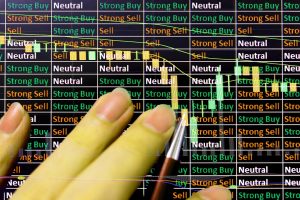What are Transactions in Business with OTC Trading?11 min read
Reading Time: 5 minutesOver-the-counter trading or shortly OTC trading refers to the buying and selling of financial instruments directly between two parties, such as stocks, debt securities, commodities or other assets.
OTC trading typically occurs on networks managed by digital banking services such as The Kingdom Bank whose systems quote prices at which dealers buy and sell stocks with traders using these systems to trade online or via telephone – market makers set their own prices and may or may not make a profit on every trade they manage.
What is OTC Trading?
OTC trading refers to a form of market where investors can purchase or sell securities that don’t feature on centralized exchanges, including smaller companies that don’t meet exchange listing requirements as well as ADRs, bonds and cryptocurrency. OTC trading crypto is also a new trendy trade solution now.
OTC investments can be highly profitable, yet they do pose greater risk than exchange-traded assets.
Some of this comes from not meeting the same transparency standards required of exchange-traded investments, making the information they have less available to investors – potentially leading to fraudulent schemes such as “pump and dump”, where people hype a company’s share price before selling quickly, driving its price downward.

How to Do OTC Trading?
OTC stocks tend to be riskier than their exchange-traded counterparts and can lose value quickly, so investors who wish to engage in OTC stock trading must understand all risks and have a carefully thought-out investing plan in place.
The question “How does OTC trading in business work?” can be asked as simply a new type of market where all members can trade in decentralized ecosystems.
Investing in OTC securities can be done either on OTC trading platform and exchanges or through broker-dealers specializing in specific industries or geographies, or directly by their clients themselves through broker-dealers who purchase and sell OTC securities to and from clients as market makers.
Trading OTC securities isn’t much different from investing in stock that trades on an electronic trading system like those found at traditional stock exchanges; many of them use similar electronic trading systems.
How is OTC Trading Beneficial for Business?
OTC trading gives businesses an opportunity to invest in companies not listed on major stock exchanges for various reasons, such as missed deadlines for reporting financial information to the Securities and Exchange Commission, or its nature preventing it from meeting requirements for exchange listing. Many OTC market stocks trade for under $5 per share – these penny stocks represent opportunities.
OTC markets are less formal but well-organized networks of trading relationships centered on one or more dealers acting as market makers to post buy and sell quotes for customers or other dealer clients through electronic bulletin boards or directly.
They communicate quotes and negotiate orders through telephone conversations, mass email messages or instant messaging platforms such as social media or texting services.
OTC trading platform fidelity features lower regulatory standards than exchanges, which allows traders to be more flexible while decreasing trading costs. But these fewer standards also make it harder to establish fair prices for any given product.
Before investing in OTC shares, investors should assess their individual risk tolerance and investment goals to see whether this type of trading suits them; OTC shares are higher-risk than their counterparts on major exchanges and may not perform according to expectations.
Investors looking to purchase OTC securities usually use a brokerage firm or investment OTC trading platform to place orders either online or over the phone, receiving bids and asking prices as part of their transaction.
Given that OTC markets tend to have lower liquidity than centralized exchanges, investors should be ready for possible shortages in buyers or sellers at certain times, leading to wide spreads between offer and request prices that can prove expensive for investors.

What is an Example of an OTC Transaction?
OTC markets may also be more opaque and illiquid than exchanges, leading to wider bid/ask spreads – whereby the highest offer to buy exceeds the lowest offer to sell – than those found on an exchange. As a result, traders should conduct extensive due diligence prior to engaging in any crypto OTC trading.
OTC trading can be beneficial to many companies that do not meet the requirements to list on a traditional exchange, and can often be more cost effective for them than listing their shares publicly. Unfortunately, OTC trading comes with its own set of risks: for instance, there’s a greater chance that counterparties won’t honor agreements made due to reduced transparency.
Today, many trade projects that are operated on the OTC trading platforms can be done elements of crypto OTC trading.
What is an OTC Trading Platform?
OTC trading platforms, or OTC trading platform platforms, are networks of trading relationships centered on broker-dealers rather than being physical locations; their lack of regulation makes them more prone to fraud; additionally, prices traded on an OTC trading platform are set by individual broker-dealers rather than supply and demand factors.
Sometimes large platforms that lack the resources to meet the requirements of an exchange trade OTC instead. This may apply to international companies trading ADRs or smaller businesses who haven’t made it onto Wall Street yet.
OTC trading platforms tend to be considered more risky than their exchange-listed counterparts due to a lower track record and more relaxed disclosure and financial standards. This makes OTC companies prime candidates for fraudsters engaged in pump-and-dump schemes where criminals artificially inflate share prices through fake news before taking advantage of unsuspecting investors by offloading shares quickly at higher prices than expected.
Thanks to many platforms, OTC trading hours are pretty flexible for investors and businesses now. With the increasing number of crypto OTC trading projects, operating hours are free from traditional bankings limitations. With The Kingdom Bank, you can launch your crypto OTC trading projects.
Which Platform is the Best for OTC Trading?
Businesses should only trade OTC stocks with brokers that are registered with Financial Industry Regulatory Authority (FINRA), as speculative OTC stocks can experience outsized gains or losses.
Moreover, scammers often attempt to lure investors in by pump-and-dump schemes increasing risks even further for small cap and foreign stocks trading OTC securities compared to trading large cap domestic stocks.
Even though people hype a penny stock to attract investors before selling it at a massive loss. As The Kingdom Bank, we offer these necessary details with a fast and secure ecosystem. The Kingdom Bank offers reputable and reliable OTC trading crypto services for you including also beginner traders. If you are a beginner level investor in OTC trading, you can use our supportive tools for traders.
About The Author





